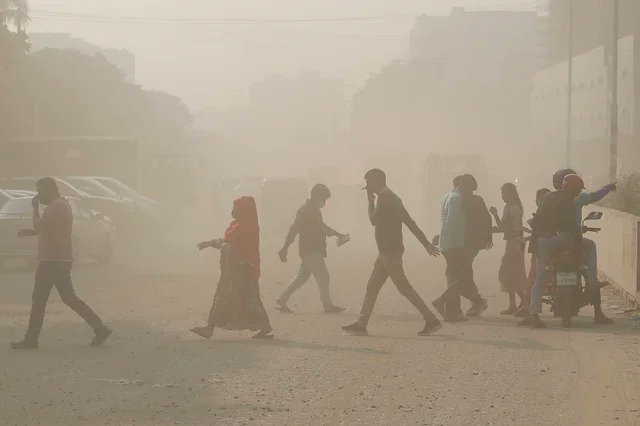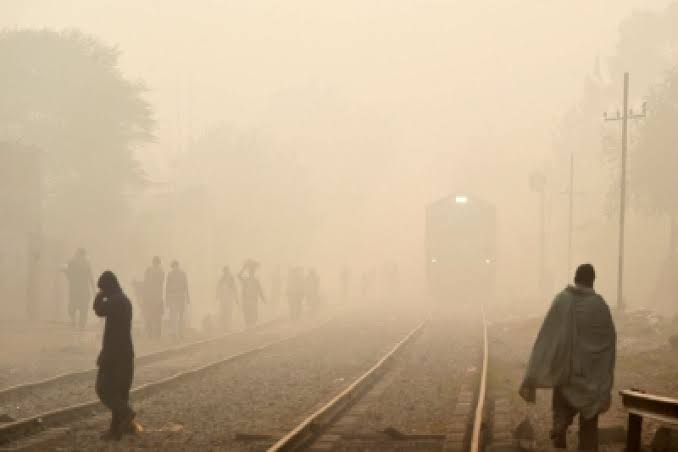Tue 14 March 2023:
Lahore in Pakistan has jumped more than 10 places to become the city with the worst air in the world in 2022, according to an annual global survey by a Swiss maker of air purifiers.
The report published on Tuesday by IQAir also said Pakistan stood third among the countries with the most polluted air, while Bangladesh was the fifth and India eighth.
Dhaka, Bangladesh.
IQAir measures air quality levels based on the concentration of lung-damaging airborne particles known as PM2.5. Its annual survey is widely cited by researchers and government organisations.
Lahore’s air quality worsened to 97.4 micrograms of PM2.5 particles per cubic metre from 86.5 in 2021, making it the most polluted city globally.
Lahore, Pakistan.
Hotan, the only Chinese city in the top 20, followed Lahore with PM2.5 levels of 94.3, an improvement from 101.5 in 2021.
The next two cities in the rankings were in India: Bhiwadi, on New Delhi’s outskirts had pollution levels at 92.7, and the national capital followed close behind at 92.6.
While Chad had an average level of 89.7, Iraq, which had the second most polluted air for a country, averaged 80.1.
Pakistan, which had two of the five cities with the worst air in 2022, stood third in the country-wide ranking at 70.9, followed by Bahrain at 66.6.
Bangladesh’s air quality improved from 2021, when it was tagged as the country with the worst air. It is ranked fifth in the latest report, with PM2.5 levels coming down to 65.8 from 76.9.
India’s air seven times worse than WHO levels
India has some of the most polluted cities in the world, but ranked eighth in the latest report, with PM2.5 levels at 53.3.
The report said India and Pakistan experienced the worst air quality in the Central and South Asian regions, where nearly 60 percent of the population lives in areas where the concentration of PM2.5 particles is at least seven times higher than WHO’s recommended levels.

It said one in 10 people globally were living in an area where air pollution poses a threat to health. According to WHO, some seven million people worldwide die prematurely each year due to ambient air pollution.
The US Pacific territory Guam had cleaner air than any country, with a PM2.5 concentration of 1.3, while Canberra had the cleanest air for a capital city, with 2.8.
The IQAir index was prepared using data from more than 30,000 air quality monitors in more than 7,300 locations in 131 countries, territories and regions.
On average across the globe, the daily limit of exposure to ambient PM2.5 particles recommend by the WHO was exceeded on more than 70 percent of days in 2019, according to the findings.
For their study, the research group led by Yuming Guo from Melbourne’s Monash University determined particulate matter pollution on the basis of measured values and computer models for the years from 2000 to 2019.
PM2.5 levels were lowest in Australia and New Zealand (8.5), the rest of Oceania (12.6) and South America (15.6).
NEWS AGENCIES
___________________________________________________________________________________________________________________________________
FOLLOW INDEPENDENT PRESS:
TWITTER (CLICK HERE)
https://twitter.com/IpIndependent
FACEBOOK (CLICK HERE)
https://web.facebook.com/ipindependent
Think your friends would be interested? Share this story!







